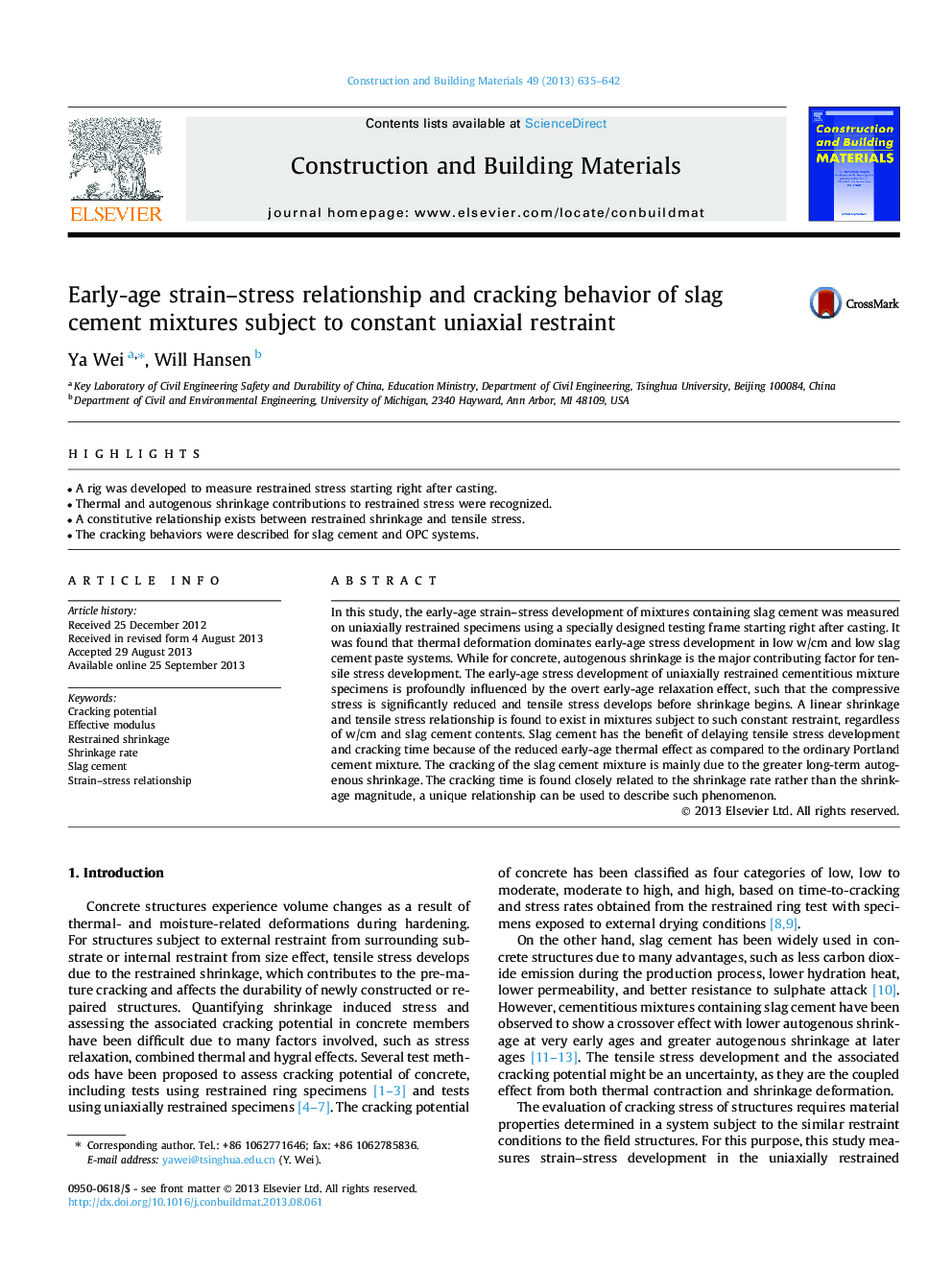| Article ID | Journal | Published Year | Pages | File Type |
|---|---|---|---|---|
| 6725121 | Construction and Building Materials | 2013 | 8 Pages |
Abstract
In this study, the early-age strain-stress development of mixtures containing slag cement was measured on uniaxially restrained specimens using a specially designed testing frame starting right after casting. It was found that thermal deformation dominates early-age stress development in low w/cm and low slag cement paste systems. While for concrete, autogenous shrinkage is the major contributing factor for tensile stress development. The early-age stress development of uniaxially restrained cementitious mixture specimens is profoundly influenced by the overt early-age relaxation effect, such that the compressive stress is significantly reduced and tensile stress develops before shrinkage begins. A linear shrinkage and tensile stress relationship is found to exist in mixtures subject to such constant restraint, regardless of w/cm and slag cement contents. Slag cement has the benefit of delaying tensile stress development and cracking time because of the reduced early-age thermal effect as compared to the ordinary Portland cement mixture. The cracking of the slag cement mixture is mainly due to the greater long-term autogenous shrinkage. The cracking time is found closely related to the shrinkage rate rather than the shrinkage magnitude, a unique relationship can be used to describe such phenomenon.
Related Topics
Physical Sciences and Engineering
Engineering
Civil and Structural Engineering
Authors
Ya Wei, Will Hansen,
